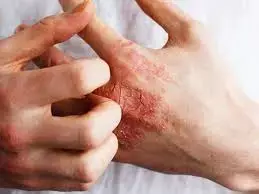- Home
- Medical news & Guidelines
- Anesthesiology
- Cardiology and CTVS
- Critical Care
- Dentistry
- Dermatology
- Diabetes and Endocrinology
- ENT
- Gastroenterology
- Medicine
- Nephrology
- Neurology
- Obstretics-Gynaecology
- Oncology
- Ophthalmology
- Orthopaedics
- Pediatrics-Neonatology
- Psychiatry
- Pulmonology
- Radiology
- Surgery
- Urology
- Laboratory Medicine
- Diet
- Nursing
- Paramedical
- Physiotherapy
- Health news
- Fact Check
- Bone Health Fact Check
- Brain Health Fact Check
- Cancer Related Fact Check
- Child Care Fact Check
- Dental and oral health fact check
- Diabetes and metabolic health fact check
- Diet and Nutrition Fact Check
- Eye and ENT Care Fact Check
- Fitness fact check
- Gut health fact check
- Heart health fact check
- Kidney health fact check
- Medical education fact check
- Men's health fact check
- Respiratory fact check
- Skin and hair care fact check
- Vaccine and Immunization fact check
- Women's health fact check
- AYUSH
- State News
- Andaman and Nicobar Islands
- Andhra Pradesh
- Arunachal Pradesh
- Assam
- Bihar
- Chandigarh
- Chattisgarh
- Dadra and Nagar Haveli
- Daman and Diu
- Delhi
- Goa
- Gujarat
- Haryana
- Himachal Pradesh
- Jammu & Kashmir
- Jharkhand
- Karnataka
- Kerala
- Ladakh
- Lakshadweep
- Madhya Pradesh
- Maharashtra
- Manipur
- Meghalaya
- Mizoram
- Nagaland
- Odisha
- Puducherry
- Punjab
- Rajasthan
- Sikkim
- Tamil Nadu
- Telangana
- Tripura
- Uttar Pradesh
- Uttrakhand
- West Bengal
- Medical Education
- Industry
Dupilumab effective against moderate-to-severe AD across all anatomic regions

In adult patients with moderate-to-severe atopic dermatitis, treatment with dupilumab resulted in rapid and sustained improvement in the signs of atopic dermatitis across all anatomic regions according to a recent study published in the Dermatology and Therapy
In a 52-week, phase 3 clinical trial (LIBERTY AD CHRONOS) in adult patients with moderate-to-severe atopic dermatitis (AD), dupilumab in combination with topical corticosteroids (TCS) resulted in a significant improvement in overall Eczema Area and Severity Index (EASI) compared with placebo plus topical corticosteroids. In a post hoc analysis, dupilumabsignificantly improved the overall extent and severity of atopic dermatitis across four anatomic regions (head and neck, trunk, upper extremities, lower extremities) over 16 weeks. However, as atopic dermatitis severity and presentation may vary by body region, this analysis sought to determine whether there are regional variations in dupilumab efficacy.
Using data from the LIBERTY AD CHRONOS study, we performed a post hoc analysis of the mean percentage change in individual EASI signs (erythema, infiltration/papulation, excoriation, lichenification) from baseline through week 52 across four anatomic regions (head and neck, trunk, upper extremities, lower extremities).
Results:
Dupilumab plus topical corticosteroids, compared with placebo plus topical corticosteroids, significantly improved the severity of all individual atopic dermatitis signs to a similar extent across the four anatomic regions. Significant improvements in each sign were seen early, within the first 2-4 weeks of treatment, and were sustained through week 52 across all regions.
Thus, in adult patients with moderate-to-severe atopic dermatitis, treatment with dupilumab resulted in rapid and sustained improvement in the signs of atopic dermatitis across all anatomic regions.
Reference:
Blauvelt A, de Bruin-Weller M, Simpson EL, Chen Z, Zhang A, Shumel B. Dupilumab with Topical Corticosteroids Provides Rapid and Sustained Improvement in Adults with Moderate-to-Severe Atopic Dermatitis Across Anatomic Regions Over 52 Weeks. Dermatol Ther (Heidelb). 2022 Jan;12(1):223-231. doi: 10.1007/s13555-021-00638-1. Epub 2021 Nov 22. PMID: 34806137; PMCID: PMC8776906.
Keywords:
Blauvelt A, de Bruin-Weller M, Simpson EL, Chen Z, Zhang A, Shumel B, Dupilumab, Topical Corticosteroids, Provides, Rapid, Sustained, Improvement, Adults, Moderate-to-Severe, Atopic, Dermatitis, Across, Anatomic, Regions, 52 Weeks, Dermatology and Therapy
Dr. Shravani Dali has completed her BDS from Pravara institute of medical sciences, loni. Following which she extensively worked in the healthcare sector for 2+ years. She has been actively involved in writing blogs in field of health and wellness. Currently she is pursuing her Masters of public health-health administration from Tata institute of social sciences. She can be contacted at editorial@medicaldialogues.in.
Dr Kamal Kant Kohli-MBBS, DTCD- a chest specialist with more than 30 years of practice and a flair for writing clinical articles, Dr Kamal Kant Kohli joined Medical Dialogues as a Chief Editor of Medical News. Besides writing articles, as an editor, he proofreads and verifies all the medical content published on Medical Dialogues including those coming from journals, studies,medical conferences,guidelines etc. Email: drkohli@medicaldialogues.in. Contact no. 011-43720751


